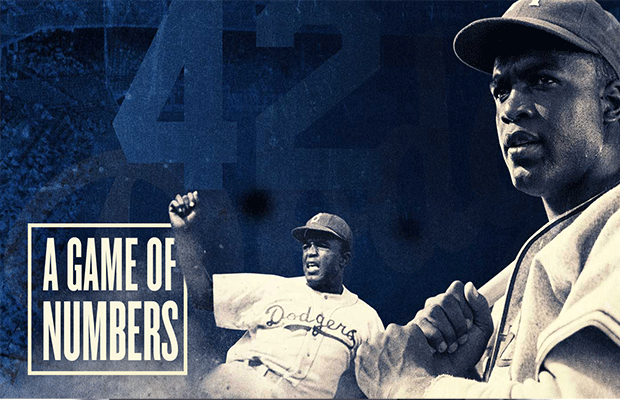A Game of Numbers

Numbers matter. Nowhere is that more true than in Major League Baseball. Players, coaches, executives, and fans keep a close eye on the numbers in all professional sports, but they take it to a whole different level in baseball.
Take for instance the number 2,632. All true fans know that is the number of consecutive games that “Iron Man” Cal Ripkin, Jr. played without missing a single outing, despite suffering a handful of injuries along the way that would have kept mere mortals out of the lineup. Since Ripkin, no player has reached even half that total. Or the number 3,562, the record-setting total number of games played by Pete Rose during his career.
How about the number 262, the nearly unfathomable hit total Ichiro recorded in 2004? Or the number 1,406, Ricky Henderson’s impossible-to-match career stolen base total. What about the number .366? That’s the highest career batting average in history, a record held by Ty Cobb. Or the number 762, the record-shattering (and controversial) career home run total turned in by Barry Bonds. Or the number 2,297, the most runs batted in over a career, a record held by Hank Aaron.
But among all these giants, one player stands out above the rest. He only played in 1,382 games during his 10-season career, nowhere near the record set by Pete Rose, with no “Iron Man” streaks like Ripkin. He never had more than 203 hits in a single season, so he didn’t threaten Ichiro’s record. His career batting average was a solid .311, but not a threat to the number posted by Ty Cobb. He only stole 197 bases, hit 137 home runs, and batted in 734 runs during his career, so he didn’t threaten the lifetime numbers posted by Ricky Henderson, Barry Bonds, or Hank Aaron.
Don’t get me wrong—this player had a very impressive career and some inspired single season numbers at the plate. He was named rookie of the year in 1947 and National League MVP in 1949. He was on the All-Star team in six of his 10 seasons, and he played in six World Series for the Dodgers. But his statistics and awards do not explain why his jersey number, 42, is the only number retired by every single major league baseball team in the league.
His stats do not shed much light on why every single player and manager wears jersey number 42 every year on April 15. No, Jackie Robinson stands out among the other giants of baseball because of the impact he had on the game beyond wins, losses, and statistics. Every year on Jackie Robinson Day, the date in 1947 when he broke the color barrier in Major League Baseball by starting at first base for the Brooklyn Dodgers, we honor Robinson’s legacy, not his numbers.
Often when I meet with families to discuss estate planning, they start by saying, “We don’t have much, but what we have we want to pass on to our family.” That is a good goal to have. The alternative, of course, without planning would be the risk of losing a large portion of the estate to lawyers, courts, taxes, or even nursing home costs. But I take issue with the premise of that comment—the “we don’t have much” part. Just like Jackie Robinson’s impact on the world was much bigger than the numbers he posted in 10 seasons for the Dodgers, what these families have is much more than the numbers that show up on their bank statements.
When a father takes the time to get his affairs in order the right way through estate planning, he sets an example to his family as to what it looks like to be organized and prepared. When a mother puts a solid estate plan in place, she shows that she cares about what her children would be going through after she’s gone. The value of a person’s legacy is measured in more than the number of dollars he or she passes on to the next generation. Think about the legacy you want to leave behind, and invest enough time and effort into the planning process to ensure you do it right.
At The Elrod Firm, our top priority is helping families leave a legacy, not just an estate. To learn more about how we can help families with estate planning and long-term care concerns, visit our website at ElrodFirm.com.









4 comments